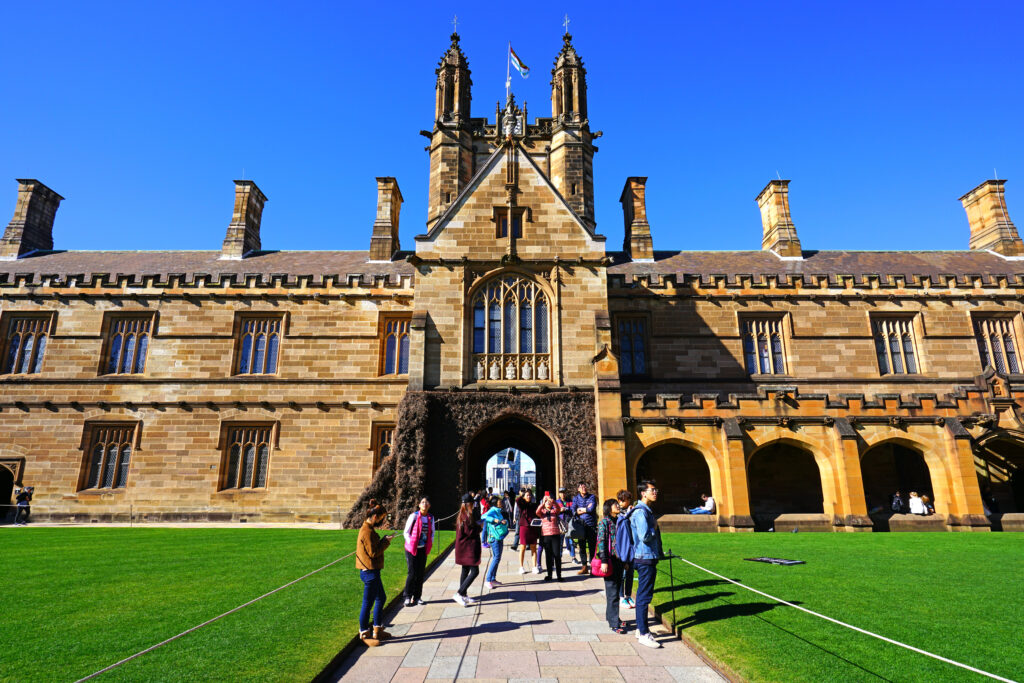Employability can be one of the most important factors to consider when comparing the scores and rankings of Australian universities.
Let’s explore what goes into an employability ranking, as well as other rankings you might want to pay attention to when researching where to study in Australia as an international student.
What is a university’s employability ranking?
An employability ranking is a score that compares how likely a graduate is to obtain employment in their chosen field. For example, The University of Sydney is ranked #1 in Australia for graduate employability (a position its held for the past five years!) and #4 in the world (QS World University Rankings).
Rankings like this may be available on the university’s website, featured on a ranking website like Quacquarelli Symonds (QS), or attached to a renowned course or degree. QS says for many students, a successful career is a primary goal of their university education. Their Employment Outcomes indicator reflects an institution’s ability to ensure a high level of employability for their graduates.
How is an employability ranking calculated?
QS Employment Outcomes
Every year, QS releases global rankings of the highest-rated universities in the world. The metrics used by the rankings are based on set criteria, including employment outcomes.
According to QS, the Employment Outcomes indicator reflects the ability of institutions to ensure a high level of employability for their graduates, and impact in their respective fields.
For this, they combined two metrics:
Graduate Employment Rate
Graduate Employment Rate is defined as the percentage of graduates who go on to paid (non-voluntary) work within 15 months of finishing their degree. They consider any mode of employment (full-time or part-time), even if the status is unknown. QS also excludes graduates who are on voluntary or unpaid work, continuing further study, or unavailable for work due to military service, disability, travel, or caring needs.
Alumni Impact
This indicator measures the variety of fields producing impactful university graduates, from performing arts and politics, to finance and medicine.
According to QS, the list is continually updated with the principles of diversity and validity at its core.
To produce this list, they use a combination of externally published lists (e.g. Forbes 30 Under 30) and in-house sourced information, such as world leaders and high-ranking officials.
Times Higher Education Global University Employability Ranking
Another renowned resource for university rankings is Times Higher Education (THE). Each year, THE publishes the Global University Employability Ranking, a ranking designed by the HR consultancy Emerging.
Here, employability is measured by an independent survey, exclusively basing results on direct employer assessments. Employers from 24 different countries rate the employability performance of a list of more than 1,000 universities worldwide. Put simply, this ranking reveals which universities the recruiters at top companies around the world think are the best at preparing students for the workplace.
The Good Universities Guide
If you want to compare Australian education providers exclusively, The Good Universities Guide can be a great place to start. Each year, they share their Undergraduate Full-Time Employment ratings in Australia. This rating compares the employment rates of graduates from different universities. It looks at the proportion of graduates who were employed full-time four months after completing their course.
How important is a university’s employability ranking?
So, how seriously should you take these rankings? Understanding which universities are putting students on the right path to a career in their chosen field can be a valuable asset.
When making the decision of where to study in Australia, you can also consider which universities have industry partnerships, internships, and work-experience programs or work-integrated learning that will provide you with valuable experience throughout your degree.
At the end of the day, going to a university thank ranks highly for its employability is great, but it’s still up to you to put in the work and take advantage of opportunities available to you along the way.
What else are universities ranked on?
Rankings can be a great way to filter your study options by what best suits your unique wants and needs. You may also be motivated by student experience rankings, sustainability, or the quality of the institution’s research output.
Other things universities are ranked on include:
- Academic reputation
- Employer reputation
- Faculty/student ratio
- Citations per faculty
- International faculty ratio
- International student ratio
- International research network
Read more: What’s Actually Behind University Rankings?
However, it’s also important to consider an institution beyond its rankings. For example, try and speak to previous alumni or current students about their experiences, attend events that the university hosts, and look into the kind of opportunities that your course will offer. For example, whether programs are accredited by professional organisations. You can also check whether the institution is part of a university network, such as the Group of Eight in Australia, which is the equivalent of Ivy League or Russell Group status, identifying universities with strong research outputs.
The decision of where you study as an international student is an extremely important one, so make sure you take the time to review all of your options. There’s a perfect course and university for everyone!
Their excellence in research and teaching makes the University of Sydney one of the top universities in Australia and highly ranked among the best universities in the world.
Learn more about studying as an international student at the University of Sydney.






